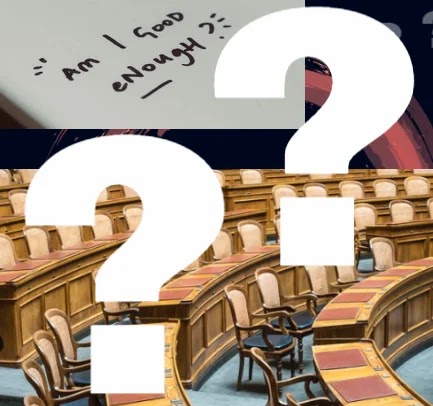We
must question to the democratic government and protest against our democratic
government to preserve our democracy healthy. Protesting is a necessary right.
Why is it only democracy that benefits from questioning? Religion and society
both benefit from it.
What
is the source of this questioning? Despite the high risk of being labeled a
traitor in modern India, the right to question was recognized in ‘traditional'
India.
The
Supreme Court of India recently reminded us that "questioning is not only
treason," and in doing so, but our culture was also protected. Those that
raise concerns about society, religion, or the state do so because they are
aware of the issues. That is to say, questioning does not imply contradiction
and the person who asks the question is not the opponent - rather, he can be
described as a constructive thinker and ally of the entire system. Those who
are friends never agree to their superiors engaging in any illegal or unethical
behavior. Those who engage in illegal or unethical activities are only
concerned with their future, and they live a very happy life. Their influence
on one's mental growth is unfavorable.
In
a true democracy, religion, as well as conscious citizens, is valued, as is a
development-oriented society that respects and opposes dissent. Not only that,
but by adopting the alternative viewpoint as necessary, he transforms himself.
The word appears in the minds of several Indian intellectuals throughout
history.
The
Shantiparva, also known as Jan Sadan, in Mahabharata, hosted a gathering of
common people known as Parliament. During the Buddhist period, democracy was
also prevalent. The democratic system of that time may be seen in Licchavi,
Vaishali, Malak, Madak, Kamboj, and so on. Vishal, Vaishali's first monarch,
was elected by the people. The Republic is divided into two types described in
Kautilya's Arthashashtra: the Ayudh Republic, in which the lone king makes
choices, and the Republic only, in which everyone can participate in the
decision-making process.
There
are eight major qualities of good governance. It is democratic,
consensus-driven, accountable, transparent, responsive, effective, and
efficient, as well as equitable and inclusive, and it adheres to the rule of
law.
Court
warnings are frequently issued against the central government. The rulers have
no choice but to accept. The word of justice is free of the tragedy of having
to face the fate of silent tears. If you're frustrated in this position, you'll
keep going. Those who are morally conscious citizens must keep their faith.
They are not the country's opponents; rather, they are the country's actual
allies. The Indian historical trend for
a long time, Indian culture has had a flowing heritage; that heritage of
inquiring, of being attentive. India has long been a supporter of the conscious
inquirer.
The
Buddha, who questioned Vedic Karmaism, is listed among the Dashavatars.
Regardless of the state's current attitude toward the questioners, they may be
acknowledged as patriots in India in the future.
Sometimes
the government does things that are against our country's constitutional,
social, and moral foundations without realizing it. Asking questions does not
always imply criticism or does not always imply opposition. It indicates that we care about our country
and are interested in learning more about it. It's a patriotic gesture! We
eliminate the opportunity for the government to improve if we refuse to
question it. Democracy must be able to benefit from a diversity of ideas.
People in positions of power should welcome criticism to better themselves.
We
must love and support the country in which we live while also providing
constructive criticism to the administration. Nothing can ever be perfect, but
we can still encourage positive behavior and suggest methods to improve.















0 Comments